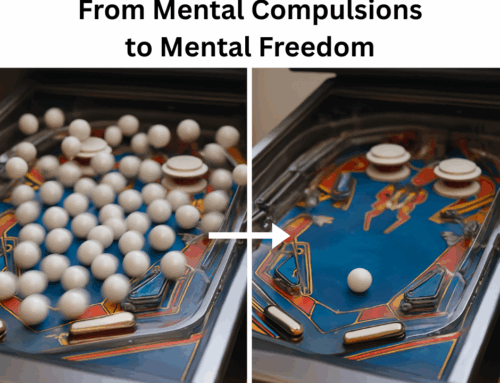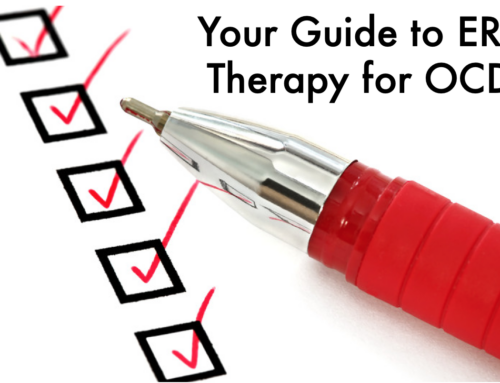The basic premise of The Four Agreements, by Don Miguel Ruiz, is how to live a life free from all the “shoulds” and “have tos” that society places on us. I think this book is especially applicable to people who have gone through exposure and response prevention (ERP) therapy successfully to overcome OCD and are now in the process of trying to build a life without OCD making all the rules. Because even after ERP, OCD can still whisper to us. If we listen to it, it can start the seeds of fear growing again, casting a shadow over our lives that becomes fertile ground for the “shoulds” and “oughts” to start flourishing once more. Adopting the four agreements after ERP is one way to banish the whispering OCD to the past, to let the sun into our lives so that the seeds of happiness, instead of the seeds of fear, can take root and grow.
People with OCD aren’t the only ones ruled by fear
The interesting thing about this book is that it talks about how fear rules everyone, even people who do not have OCD. On page 13 the author says, “If we look at human society we see a place so difficult to live in because it is ruled by fear.” A few pages further on he continues, “Death is not the biggest fear we have; our biggest fear is taking the risk to be alive….”
The four agreements
How can we learn to take the risk of being alive and enjoy it fully? The author contends that learning to live by the four agreements is the best place to begin. The four agreements are:
- Be impeccable with your word. This essentially means to stop thinking and talking badly about yourself. And to stop gossiping about others.
- Don’t take anything personally. What people do is not about you. It’s about them. Remembering this can help prevent a lot of personal suffering.
- Don’t make assumptions. Have you ever heard the saying, “If you assume, you make an “ass” out of “u” and “me”?” The author recommends that we have the courage to ask questions and not assume others know what we are thinking, what we need, what we want, etc…
- Always do your best. At first I was skeptical of this agreement, as people who have suffered from OCD tend to hear “best” and think “perfect.” But that would be an assumption (see #3). The author goes to great lengths to say that sometimes your best will be great and sometimes it will be sort of marginal, and that’s OK.
ERP is the foundation
The reason I think this book would be most helpful to people who have successfully done ERP therapy is that putting some of the agreements into practice could be really hard if you still have untreated OCD. Before treatment, I found it virtually impossible to stop thinking badly about myself, I could be so stressed out that I took everything personally, I constantly made all sorts of assumptions, and I felt that I was never at my best. Not that it’s not a good idea to try to implement the four agreements in your life if you have untreated OCD, but I think ERP helps you build a foundation for being able to implement the four agreements more easily.
If you’d like to learn more about how I can help you build that foundation, please call me at 404-632-4804 or Contact Me.






Leave A Comment